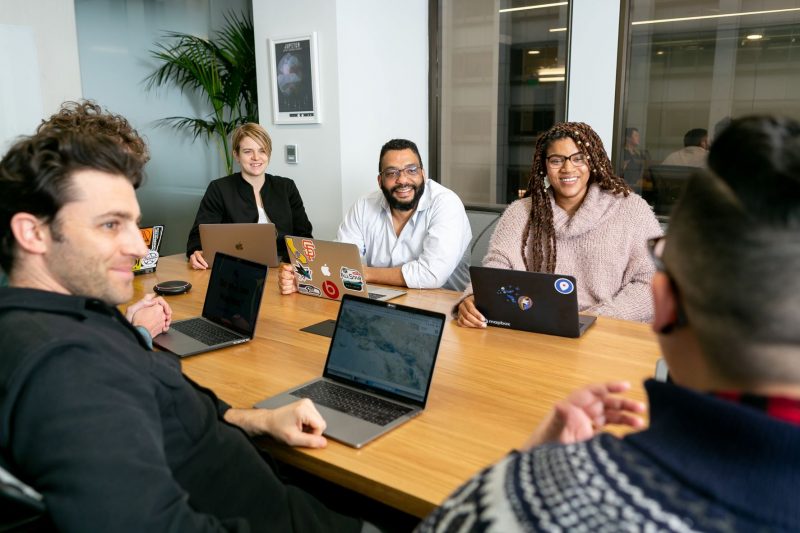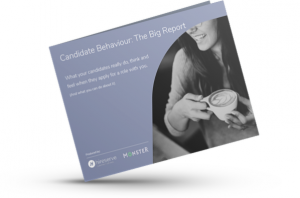New research: Gender and the recruitment process
In our recent research into candidate behaviour, we asked jobseekers across the UK how they felt and acted during the hiring process.
Today, we’re turning our attention to the different experiences of men and women throughout their recruitment journeys.
From attitudes towards interviews to perks and benefits, what did we discover?

Pre-application
We were interested to learn whether men and women researched differently ahead of applying for a role.
45% of all respondents said they would look at an organisation’s social media channels before applying for a job with them. However, women were far more likely to do this than their male counterparts (53% women vs. just 34% of men).
This could perhaps be down to the different priorities across candidates. Are women, for example, more likely to be interested in company culture and ethos, which tends to be communicated across an organisation’s social platforms?
This theory could be supported by the fact that women are also more likely to check an organisation’s careers pages than men (73% vs. 66%).
Typically, we would expect these pages to include information about a company’s working culture, staff perks, and benefits and policies – and these topics may be more of interest to our female respondents. We’ll explore this in more depth later.
Application forms
One of the stand-out stats for us was that almost half of all respondents (44%) would give up on an application if it took too long to complete.
Interestingly, women had more patience than men, with only 40% saying they would give up on their application if it was too lengthy, compared to 47% male candidates.
We wondered why this was the case. Could it be that women have access to fewer opportunities in general, so are more likely to put up with an over-long or complicated application process?
If you’re concerned about losing talent because of your application journey, we have tips for a simpler, quicker process over here!
Alongside greater levels of patience, women also displayed more tolerance than men in our research. 72% of all respondents agreed that poor spelling and grammar on a job description or application form would reflect poorly on an organisation. However, only 65% of women agreed with this statement, compared to almost 80% of men.
Confidence
Nearly two-thirds of all our respondents would not apply for a role unless there were confident they could meet the full job criteria.
When we looked at the gender split, however, only 55% of men agreed with this statement compared to 63% of women.
Younger jobseekers were also adversely impacted by confidence, far exceeding the average. In fact, 77% of those aged 18 – 24 years said that they would not apply for a role if they didn’t match the full job spec.
The interview process
Most of our survey respondents still preferred face-to-face interviews compared to online.
Interestingly though, there was a fairly significant gender split here. Men are more likely to prefer in-person interviews at 67%, whereas only 58% women agreed that they would rather face-to-face.
Again, we wondered why this was the case. Often, online interviews offer greater flexibility and accessibility to candidates, compared to the potential travel and timing barriers that in-person interviews pose.
Could it be that women, notably impacted by home-schooling and caring responsibilities throughout the pandemic, have found online interviews more inclusive and practical than face-to-face sessions?
Staff perks and benefits
Almost half of all candidates (48%) agreed that it is important for an organisation to offer enhanced maternity, paternity and shared parental leave policies.
However (and perhaps unsurprisingly), there was a notable gender split here. Only a third of men thought this was important, compared to 62% of women.
It will be interesting to see whether this gender divide evens out over time, as shared parental leave continues to grow in prominence, and more organisations enhance their support for working fathers. We hope it does.
Looking for more candidate insights? Previously we’ve explored the recruitment experiences of older candidates and the Gen Z candidate journey.
 In our new research, Candidate Behaviour: The Big Report, we spoke to a diverse range of candidates. Created in partnership with Monster, we asked jobseekers across the country, of all ages and working in a wide range of sectors, to tell us how they act, think and feel during the hiring process.
In our new research, Candidate Behaviour: The Big Report, we spoke to a diverse range of candidates. Created in partnership with Monster, we asked jobseekers across the country, of all ages and working in a wide range of sectors, to tell us how they act, think and feel during the hiring process.
So if you’re particularly interested in insights on the assessment process, or whether online interviews are the future, download your report today!
Note: In this research project, we gave candidates the option to select a gender, or to provide a ‘prefer not to say’ option. The above stats therefore are only representative of candidates who identify as men or women, and does not reflect a broader demographic of non-binary or genderqueer candidates.



